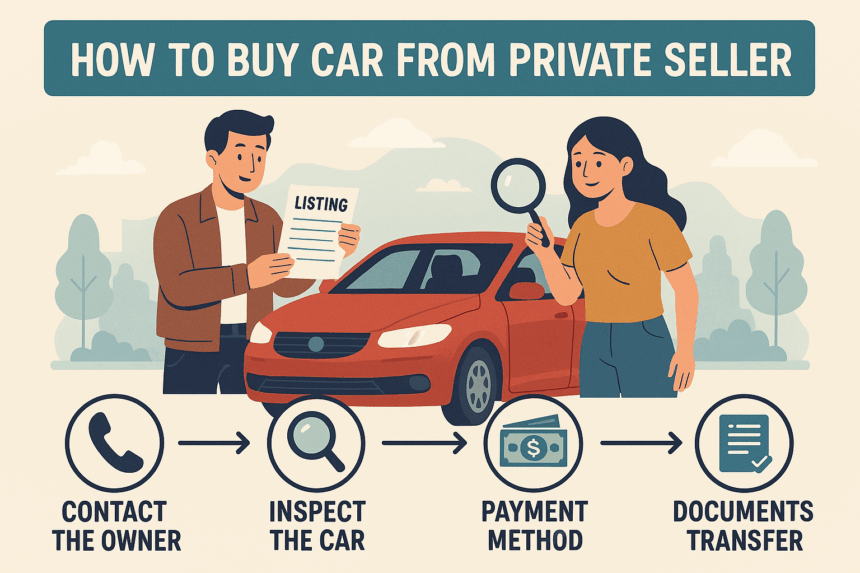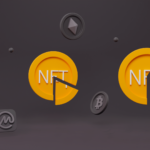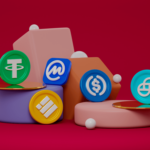In this article, I will discuss on the steps on how to purchase a car from a private seller, emphasizing key practices to ensure the deal goes through smoothly.
Setting a budget, searching for the car, inspecting the vehicle, and filling out necessary documents is methodical.
This guide ensures that you maximize your chances of making a successful purchase on an automobile from a private seller.
How To Buy Car From Private Seller
To buy a car from a private seller, please consider these steps that will help you to successfully carry out a secure transaction:
Step 1: Create a Budget
First things first, figure out your finances and how much you can spend on the car. Don’t just think about the buying price, also consider registration, insurance, repairs, and taxes. Having a strict spending limit would make sure you don’t overspend. Setting realistic boundaries helps you to control your finances.
Step 2: Research and Find Cars
Now that your finances are in check, look for cars that you are interested in with regards to make and model and also fit in your budget. Focus on cars put up for sale by private sellers in your locality through Facebook, Craigslist, or local classifieds. Make sure to note down the make, model, year, mileage, and the condition of the car.
Step 3: Contact the Seller
Once you find something that interests you, get in touch with the seller right away. Clarify details about the car’s history such as servicing records, past maintenance, and if it has been in any accidents. If you’re content with the responses, finalize a time and date to physically inspect the vehicle.
Step 4: Examine and Test The Vehicle
Ensure to meet the seller at a public place that is safe. Examine the car’s body, interior, engine, tires, and lights. It’s advisable to take the vehicle for a test drive in different conditions to assess how it performs, handles, and its overall comfort levels.
In case you lack the confidence of assessing the vehicle by yourself, you can always hire a professional mechanic to check for potential hidden problems.
Step 5: Arrive at a Price
Assuming that the vehicle meets your expectations, make sure to start discussing the price with the seller. Market research along with the inspection findings should help you to come up with a reasonable offer.
During the negotiation, ensure you remain both polite and assertive. Be prepared to walk away if the negotiations seem unfavorable; a seller stubbornly refusing reasonable offers is a deal breaker.
Step 6: Finalize Payment
Ensure to finalize payment using safe ways such as bank deposits or cashier’s checks. Ensure to collect the signed title, bill of sale, and certificates for emissions and safety along with the required paperwork.
Upon completing payment, confirm the Vehicle Identification Number (VIN) on all documents and with the vehicle to ensure they are all matching.
These actions make sure safety and efficiency are prioritized when purchasing a car from a private seller. Always verify each document in the purchase to avoid time wasting.
What Should You Inquire From The Seller Regarding The Used Car
Searching for a used car that fits your budget and is conveniently located near you can be a hassle. Once you locate a suitable option, make sure to reach out to the seller through a call to gather all necessary details.
Verifying the information the sellers provide is crucial regardless of whether you’ve read the advertisements since many sellers tend to give misleading descriptions. Ensuring that the provided details sound reasonable is critical.
- Is the vehicle title in the possession of the seller?
- Has the vehicle been exposed to smoke?
- Is the vehicle functional and operating well?
- Is there maintenance that is overdue?
- Are there any unresolved repair problems?
- Has the vehicle sustained flood damage previously?
- Is the vehicle inspected for emissions and has the inspection passed?
- Is the car still covered by the manufacturer’s warranty?
- Is there an additional transferable warranty on the car?
- Does the car hold a record for any accidents?
- With how many sets of keys or fobs does the vehicle come?
- Are all of the receipts for maintenance and repairs available from the start?
- What method of payment does the seller prefer?
- Where can you go to view the car and take it for a test drive?
- Is it permitted for your mechanic to examine the vehicle?
Common Scams when Buying from Private Sellers
Undoubtedly, purchasing a car from a private seller can save one money compared to dealerships, but one should be ready to deal with overzealous scammers operating in this business that are always on the lookout to scare less experienced buyers looking to buy a car quickly. Some of these scams include:
Title Scams
One of the most known scams when it comes to car sales is title fraud. This can happen in different ways, including:
- Title Washing: Involves a process of removing “salvage” or “rebuilt” status from a vehicle’s title typically by registering the car in a state where such practices are legal.
- VIN Fraud: This is where a con artist decides to change a car’s vehicle identification number either to escape from paying legal title fees or because he/she doesn’t want his/her car to bear its true identity.
- Title Hopping: A seller does not bother to register a car in his or her name. Instead, he retains the title of transfer of ownership documents with the previous seller’s signatures or sells it with unregistered papers.
Gift Card Scams
Some scammers will try to sell you a car by offering to accept payment via a gift card. They promise to send you the car after you share the card number and PIN. You’re left empty-handed once they seize the gift card information. The commonality of this scam stems from the fact that gift cards, in contrast to traditional payment methods, are much more difficult to track.
Stolen Vehicle Scam
Legit looking cars posted by scammers can end up being registered as stolen vehicles. The scammer uses fabricated documents in combination with a fake name and unresponsive contact details to do so. Recovery of either the cash or the car becomes a hassle because most private deals are done through cash transactions.
Wire Transfer Scam
A common method of car selling and purchasing involves paying a seller via wire transfer, which comes with its own risks like the loss of vehicle documents. It is difficult to reclaim funds or chargebacks which makes such frauds common. With this scam, the seller makes it a point to delay wire transfers to enable further document processing which in turn results in increased urgency.
Urgent or “Must-Sell-Now” Scam
A low-quality image accompanied with appealing texts capturing one’s attention results in a rapid turn around in overpayment. In an attempt to steal the cash, scammers trick customers by selling vehicles below market rates which results in them providing deposits. Other forms of manipulation attempt to take funds which in turn slowly but steadily disappear without a trace.
Curbstoning
This category of fraud consists of unlicensed traffickers masquerading as private vehicle owners looking to sell their cars. Transactions usually take place at public spots such as parking lots. The cars are often prepped cosmetically to conceal serious issues. You might acquire a stolen automobile, a salvage vehicle, or a vehicle with incomplete paperwork.
Tips on Preventing Private Seller Scam
To help protect yourself from the risk of succumbing to these private seller scams:
Confirm the Seller’s Details: Request for their full name alongside, phone number, and address. Conduct quick background checks using social media. Stay clear of sellers who cannot provide this information.
Retrieve the Vehicle’s History Report: Run the VIN through reliable websites such as Carfax or AutoCheck. It will reveal title issues, prior accidents, and whether the vehicle was stolen..
Check Market Price: Run an appraisal on Kelley Blue Book® to determine fair pricing. If listed prices are lower than average, then it most likely is a scam.
Evaluate the Vehicle: Make sure the vehicle is inspected get it from a safe public area. Evaluate for damage, mismatched paint, or other suspicious occurrences that can indicate malicious intentions.
Test Drive the Car: Drive on various types of roads and test all features, including brakes, windows, and lights. Pay attention to any unusual noises.
Get a Mechanic’s Inspection: Before purchase, have a licensed mechanic check the car. This is a small expense that can save you money in the long run.
Review Paperwork Thoroughly: Ensure you receive all documents, including an accurate title, bill of sale, and other state-required documents such as smog checks.
Pros & Cons Of Buying from a Private Seller
Pros
Competitive Pricing
The absence of sales commissions and overhead expenses allow private sellers to provide better pricing compared to dealerships.
No Extra Charges Over Purchase Price
Dealer prep fees, documentation fees, and other extras are a common occurrence with dealerships. Such charges don’t exist with private sales.
Flexible Pricing
The seller’s price is often negotiable since you can talk to them directly.
Greater Availability
Private sales often have older or rare vehicles as compared to dealerships.
Limited Pressure Tactics
The high-pressure sales tactics common at car lots are absent since you are dealing directly with the owner.
Cons
no warranties or guarantees
Most private sales are “as-is,” meaning there are no warranties provided, and the responsibility for repairs falls solely on the buyer.
Increased Likelihood of Scams
There’s a greater chance of fraud or deception regarding a vehicle’s history, condition, or title status.
No Options for Financing
Payment plans are uncommon with private sellers. It’s likely that full payment is required upfront.
Legal Safeguards Are Minimal
Direct sales between individuals might not be safeguarded under consumer protection policies that apply to dealerships.
Self Service for Paperwork
You’ll need to handle title transfer, bill of sale, registration, and other relevant paperwork on your own. Ensure they are all completed properly.
Is it Safe to Buy a Car from a Private Seller?
While buying a vehicle from an individual seller can be fairly safe if the right steps are taken, it involves somewhat more risk than buying from a dealership. Individuals tend to sell cheaper vehicles, but there are no warranties, consumer protections, or legal oversights.
For a safer transaction, confirming the seller’s identity, inspecting the vehicle, requesting a full history report, and ensuring the title paperwork is complete are the most critical steps.
Using a neutral meeting location, secure payment options, and having a trusted mechanic do a pre-purchase inspection significantly lowers the chances of concealed problems or fraud.
Conclusion
Purchasing an automobile from a private seller can be economical and beneficial if it is done with a detailed plan. To mitigate most risks calmly and easily, set a budget, researching cars, ask necessary questions, inspect the vehicle in detail, and complete the necessary legal paperwork for ownership transfer.
Always check the car’s records; avoid meeting in highly public places; and deal only after the vehicle has undergone professional checks from an automobile expert. With all the necessary precautions, it is possible to buy a dependable used car from a private seller at an attractive price.









